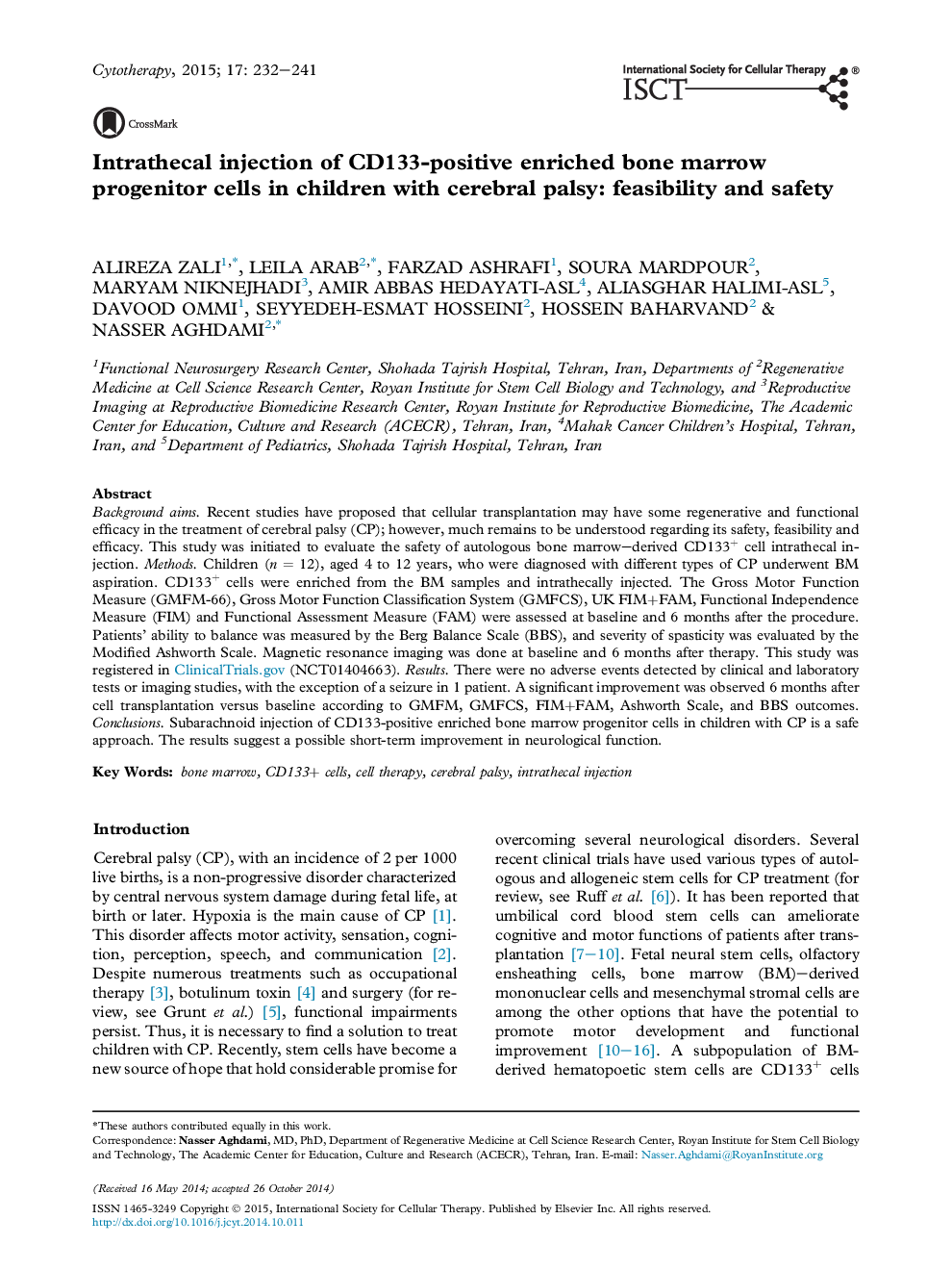| Article ID | Journal | Published Year | Pages | File Type |
|---|---|---|---|---|
| 2171830 | Cytotherapy | 2015 | 10 Pages |
Background aimsRecent studies have proposed that cellular transplantation may have some regenerative and functional efficacy in the treatment of cerebral palsy (CP); however, much remains to be understood regarding its safety, feasibility and efficacy. This study was initiated to evaluate the safety of autologous bone marrow–derived CD133+ cell intrathecal injection.MethodsChildren (n = 12), aged 4 to 12 years, who were diagnosed with different types of CP underwent BM aspiration. CD133+ cells were enriched from the BM samples and intrathecally injected. The Gross Motor Function Measure (GMFM-66), Gross Motor Function Classification System (GMFCS), UK FIM+FAM, Functional Independence Measure (FIM) and Functional Assessment Measure (FAM) were assessed at baseline and 6 months after the procedure. Patients' ability to balance was measured by the Berg Balance Scale (BBS), and severity of spasticity was evaluated by the Modified Ashworth Scale. Magnetic resonance imaging was done at baseline and 6 months after therapy. This study was registered in ClinicalTrials.gov (NCT01404663).ResultsThere were no adverse events detected by clinical and laboratory tests or imaging studies, with the exception of a seizure in 1 patient. A significant improvement was observed 6 months after cell transplantation versus baseline according to GMFM, GMFCS, FIM+FAM, Ashworth Scale, and BBS outcomes.ConclusionsSubarachnoid injection of CD133-positive enriched bone marrow progenitor cells in children with CP is a safe approach. The results suggest a possible short-term improvement in neurological function.
